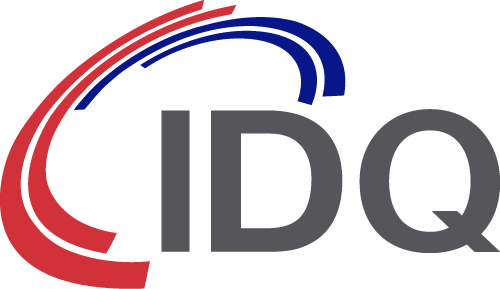PhD position in Real-time reconfigurable QKD systems
Starting date: immediately
Location: Geneva, Switzerland
Job type: Fixed-term contract (4 years)
PhD position in Real-time reconfigurable QKD systems from seamless integration in a modern network architecture (QuNEST Doctoral Candidate 11)
Research Programme Description
“QuNEST– Quantum Enhanced Optical Communication Network Security Doctoral Training” is hiring 11 Doctorate Candidates to be funded by the Marie Skłodowska-Curie Actions (MSCA) Doctoral Networks. QuNEST is a highly interdisciplinary and intersectoral Doctoral Network composed of leading academic and industrial partners. The consortium consists of six academic institutions, namely: Eindhoven University of Technology, Technical University of Denmark, Karlsruhe Institute of Technology, University of L’Aquila, University of Warsaw and University of Geneva as well as the companies: ADVA Network Security, Exatel, ID Quantique, Infinera Germany, KEEQuant (SME), NKT Photonics, Nokia Bell Labs France, Telecom Italia Mobile, Quantum Optical Technologies (SME), Quantum Telecommunications Italy and VPIphotonics and involves seven different European countries. The diverse consortium provides a unique and timely opportunity to train students in quantum physics and optical communications.
The driving force for QuNEST – is to provide high-level and highly collaborative training to 11 highly achieving Doctoral Candidates. This Doctoral Network is a highly multi-disciplinary, spanning areas of quantum physics, simulations, photonics, optical transmission, Quantum Key Distribution (QKD) protocols, implementation security, error correction algorithms, digital signal processing, networks and control, requiring cross-disciplinary and intersectoral training targeted at creating experts in this emerging multidisciplinary field. The QuNEST Doctoral Candidates will be trained by doing research, in which they will demonstrate the potential of combining quantum and classical optical data signals in a single fiber with the aim to develop ground-breaking and commercially attractive, short-to-medium term solutions targeting European industry leadership in this highly challenging sector. QuNEST will train much-needed future scientists and engineers who will design, build, deploy and operate the next generation quantum secured optical communications infrastructure.
The Doctoral Network program is designed to follow technical, scientific, and transferable skills, enabling the next generation of young researchers/engineers with excellent skills in understanding the challenges of quantum secure optical communications. All Doctoral Candidates will carry out secondments and placements with industrial partners at the earliest possible opportunity. Transferable skills and technical workshops from industrial partners will be central to the training of the Doctoral Candidates.
About the host institution
At IDQ, we change the world, one photon at a time. We deliver today’s and develop tomorrow’s quantum-safe cryptographic solutions designed to protect data for the long-term future for the financial industry, global enterprises, government organisations and research institutions globally. We also enable the development of the quantum internet, of optical quantum processing systems and applications with its range of quantum key distribution systems, quantum random number generators, high-performance single-photon detectors and specialised detection electronics and software.
The goal of this project is to contribute to outstanding advancements of IDQ’s current and future QKD systems in a context of rapid progress of this technology. As part of the QKD innovation team, the candidate will work on the development of some of the key aspects of our commercial platform based on the BB84 protocol.
Job description
- Project title: Real-time reconfigurable QKD systems from seamless integration in a modern network architecture
- Host institution: ID Quantique
- PhD enrolment: University of Geneva
- Supervisors: Gianluca Boso (ID Quantique); Félix Bussières (ID Quantique); Rob Thew (University of Geneva); Mentor: T. Bradley (Eindhoven University of Technology).
- Research objectives: DC11 will acquire the necessary knowledge of the current state-of-the-art in QKD systems and protocols both from an optical and a control plane point of view. Based on simulations and testbed operation of QKD transmission over a fiber based transmission channel, DC 11 will optimize the QKD network variations (e.g. excess loss, switching between fibers and TX/RX pairs and addition of co-propagating WDM system). The DC will re-design of the processing algorithms (e.g., error correction, sifting, privacy amplification) as applied to commercial QKD system to make them reconfigurable in real-time. Finally, the DC will work on a demonstrator at Eindhoven University of Technology and University of L’Aquila where a set of QKD systems can be reconfigured in real time via a network management system.
- Expected results: 1) Optimized parameters for a QKD system based on the transmission channel specifications, 2) New real-time configurable processing algorithms for QKD, 3) Reconfigurable QKD network demonstrator.
- Secondments: The doctoral candidate secondments periods are planned at EXATEL, VPIphotonics, University of Geneva
Job requirements
We are looking for candidates who meet the following requirements:
- You are creative, ambitious, hard-working, and persistent.
- You have an MSc degree in physics, engineering physics, electrical engineering or any other relevant program.
- You have a theoretical and applied knowledge and understanding of Quantum communications and/or Photonics.
- You have hands-on experience in Quantum communications or Optical Communications lab-based setups.
- You have excellent communication and collaboration skills. You have a personal drive and a collaborative mindset to contribute to a fast-paced research activity as an essential part of a research team.
- You have a good command of the English language (spoken and written).
Conditions of employment
- The successful candidates will receive a starting gross salary of 58’240 CHF, in accordance with the Marie Skłodowska-Curie Actions (MSCA) regulations for Doctoral Candidate researchers (the mobility allowance is included in the previous value). According to the MSCA regulation, if the recruited doctoral candidate has or acquires family obligations during the action duration, a family allowance will be added to the previous value, in case of eligibility.
- The period of employment is 48 months. In addition to their individual scientific projects, all fellows will benefit from further continuing education, which includes secondments, a variety of training modules as well as transferable skills courses and attractive participation in conferences.
- The Doctoral Candidates are expected to travel to network partners under three secondments for a typical duration of 2-6 months. Additionally, the Doctoral Candidates are expected to participate in outreach activities including, but not limited to, YouTube videos, social media updates, participation in public events and campaigns, as well as dissemination to popular press.
Eligibility and mobility criteria (mandatory requirements EU rules)
- The recruited researchers must be doctoral candidates, i.e. not already in possession of a doctoral degree at the date of the recruitment.
- The recruited researchers must be employed full-time, unless the granting authority has approved a part-time employment for personal or family reasons.
- The recruited researchers must be working exclusively for the project.
- Recruited researchers can be of any nationality and must comply with the following mobility rule: they must not have resided or carried out their main activity (work, studies, etc.) in the country of the recruiting beneficiary for more than 12 months in the 36 months immediately before the recruitment date – unless as part of a compulsory national service or a procedure for obtaining refugee status under the Geneva Convention1
Application procedure
Documents requested:
- Complete CV (Europass format obligatory). The candidates are allowed to pursue a maximum of three positions in the QuNEST program. If more than one position is pursued, please clearly indicate all the positions that are pursued with priorities on the first page of the CV.
- Motivation letter (maximum 1 page per position applied) should state why the applicant wishes to pursue specific research and why the applicant thinks to be an ideal candidate for the position.
- Scan of certificates showing BSc, MSc and other courses followed, with grades and if it is possible a ranking.
- Up to three recommendation letters and/or contact e-mail addresses with a brief professional description (title, position, relationship with applicant) of the referring person.
- Up to two written scientific reports in English (e.g. MSc thesis, traineeship report or scientific paper).
- Eligibility Statement: for verifying the MSCA requirements, the candidates clearly indicate the country or countries of the main activity (work, studies, etc.) and country or countries of residence in the last 5 years with the exact dates.
Selection process
The selection process of invited candidates contains two phases:
In the first phase, a wide range of selection practices will be used (including expert assessment, face-to-face interviews, etc.) to evaluate the potential candidates. The selection committee for each doctoral candidate will be composed of three members: the main supervisor from the hosting institution, a QuNEST representative from another beneficiary and the future secondment manager of the doctoral candidate.
In the second phase, the selected candidate will be evaluated by QuNEST’s Recruitment, Equality, Diversity & Inclusion Committee. The committee addresses gender balance and diversity issues within the entire Doctoral Network and needs to approve the selected candidate.
QuNEST deals with a recruitment process based on the European principles of openness, fairness and transparency that guarantee a selection of candidates in respect of merit and gender balance. All institutions have clear equal opportunities policies ensuring equal and fair recruitment and employment of men and women.
Please note that all submitted applications will be checked against the defined eligibility and mobility criteria. Applications that do not follow these criteria will not be considered.
How to apply
Should you meet all above-mentioned criteria and be interested by this opportunity, please send a full application (with PhD QuNEST mentioned in the subject) to: internship@idquantique.com.
Please note that due to a large number of applicants, if you do not receive an answer within 45 days after submission, please consider that your application is refused.
At IDQ, Diversity & Inclusion is at the heart of our organisation, it’s an integral part of our history, culture and identity. We recognise that embracing diversity unlocks innovation and creativity and fosters collaboration. As a result, our teams are stronger to drive the company’s future.
ID Quantique is an equal opportunity employer and considers qualified applicants for employment without regard to race, color, religion, national origin, sexual orientation, gender identity, age, disability, veteran status or any other status protected by law.



